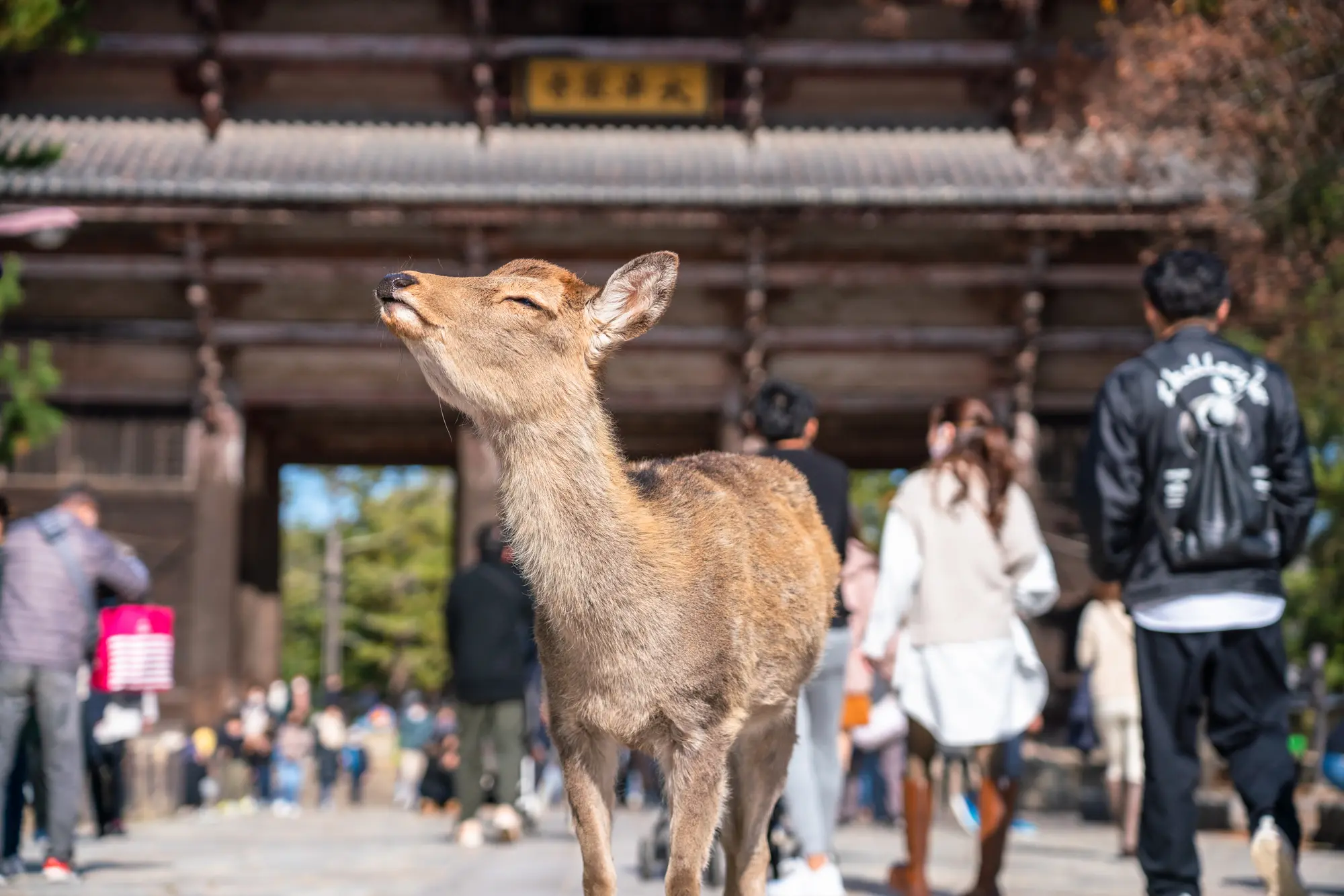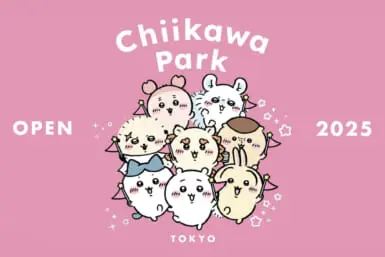Nara Park’s deer, gentle creatures that have roamed the grounds for centuries and embody the spirit of Japan’s ancient Shinto traditions, have become participants in a disturbing spectacle of tourist irresponsibility. Recent viral videos reveal a troubling trend: people treating them with reckless disregard.
Brutality on Display
A viral video from July lays bare a particularly egregious display of tourist misconduct in Nara. The footage captures a man in a white T-shirt delivering a vicious kick to one of the deer calmly milling around a sidewalk. The sickening sound of his shoe smacking the deer’s hindquarters echoes as the poor creature, caught completely off guard, bolts forward in panic.
The man’s aggression, however, doesn’t end there. Unsatisfied with his initial act of violence, he repeats his cruel behavior with another swift kick when the same deer crosses his path moments later. When another deer has the audacity to look in his direction, he slaps it across the face.
This incident is just another drop in the bucket of grotesque behavior plaguing Nara Park. In another widely circulated clip from late August, a tourist’s actions plummet to new depths of degradation. The video captures the moment with stark clarity: a man gleefully smearing a rice cracker with feces before extending it to a deer. The deer, initially trusting as it approaches, recoils in disgust when the foul smell hits its nose. Yet the tourist persists, waving the contaminated cracker in the deer’s face as if coercing it into eating his revolting offering.
中国人観光客、奈良の鹿に糞を付けた鹿煎餅を与えて大笑い。この連中、根本的な部分で文明人とは全く異なる連中なのだろうな。 pic.twitter.com/VWg0PgcopL
— 山本慎二 (@qsfkbwIhuWLhnjI) July 24, 2024
The Social Media Circus
The virality of such incidents has fueled an online frenzy, often targeting Chinese tourists. A particularly explosive video posted on X on September 1 involves a former Japanese YouTuber known as Hezumaryu (real name Masahiro Harada) yelling at a Chinese tourist in Nara for allegedly kicking a deer “like a soccer ball.” Hezumaryu is notorious for ambushing strangers with juvenile pranks.
【警察沙汰】
中国人が鹿さんをサッカーボールのように蹴り上げたのですぐにカメラを回しました。こいつら言い訳ばかりだし女が被害者ヅラしてキレて来たので奈良公園から追い出しました。
日本に何をしに来たんだ?
動物を虐める奴はマジで許さんからな。
フォロー拡散宜しくお願いします。 pic.twitter.com/pg0LIrr74e— へずまりゅう原田将大(山口県代表) (@hezuruy) August 30, 2024
In this latest video, Hezumaryu’s actions follow a familiar pattern: leveraging shock value and public indignation to bolster his notoriety. While his confrontations might seem like righteous outrage on the surface, they often serve a more insidious purpose, stoking the flames of xenophobia and societal division.
His video has amassed over 25 million views, with many Japanese netizens quick to condemn the tourist’s actions. However, some have pointed out that the supposed kick was more of a nudge and argue that the video caters to those eager to consume anti-Chinese content, regardless of the facts.
Legal Context and Public Perception
Nara’s deer are safeguarded under Japan’s cultural property laws, with serious penalties for harm. Past cases have seen individuals sentenced to jail for injuring or killing these protected animals. Yet, in the current climate, legal outcomes are overshadowed by the court of public opinion, where social media narratives often distort facts to suit preconceived biases.
A Broader Issue
This problem transcends mere tourist misconduct. It’s emblematic of a deeper, more insidious issue involving xenophobia and the exploitation of viral content. The videos that capture these disturbing incidents are not merely snapshots of bad behavior — they are potent tools that stoke societal tensions, fostering a cycle of distrust and hostility. The ease with which these incidents are weaponized against entire nationalities highlights a troubling trend where the actions of a few are magnified to fuel divisive narratives.
Amid the uproar and the digital pile-ons, however, it is the deer themselves that remain the most innocent and vulnerable victims of all. These animals, which have roamed Nara Park for centuries as sacred symbols of peace and natural beauty, now find themselves at the mercy of an ever-growing tide of tourists who are often ill-prepared or unwilling to treat them with the respect they deserve.
Their suffering, often overlooked in the rush to assign blame or generate online content, is the clearest indicator of our collective failure. The very beings that Nara Park was designed to protect are the ones who suffer most as their home becomes a stage for cruelty and exploitation.
Nara’s deer deserve more than to be pawns in this digital age of outrage. Nara Park calls for a deeper, more comprehensive approach — one that goes beyond punitive measures and seeks to educate and inspire genuine respect for the living symbols of the park. This requires a collective reevaluation of how we engage with wildlife and one another, urging us to look beyond our screens and recognize the profound impact of our actions.









